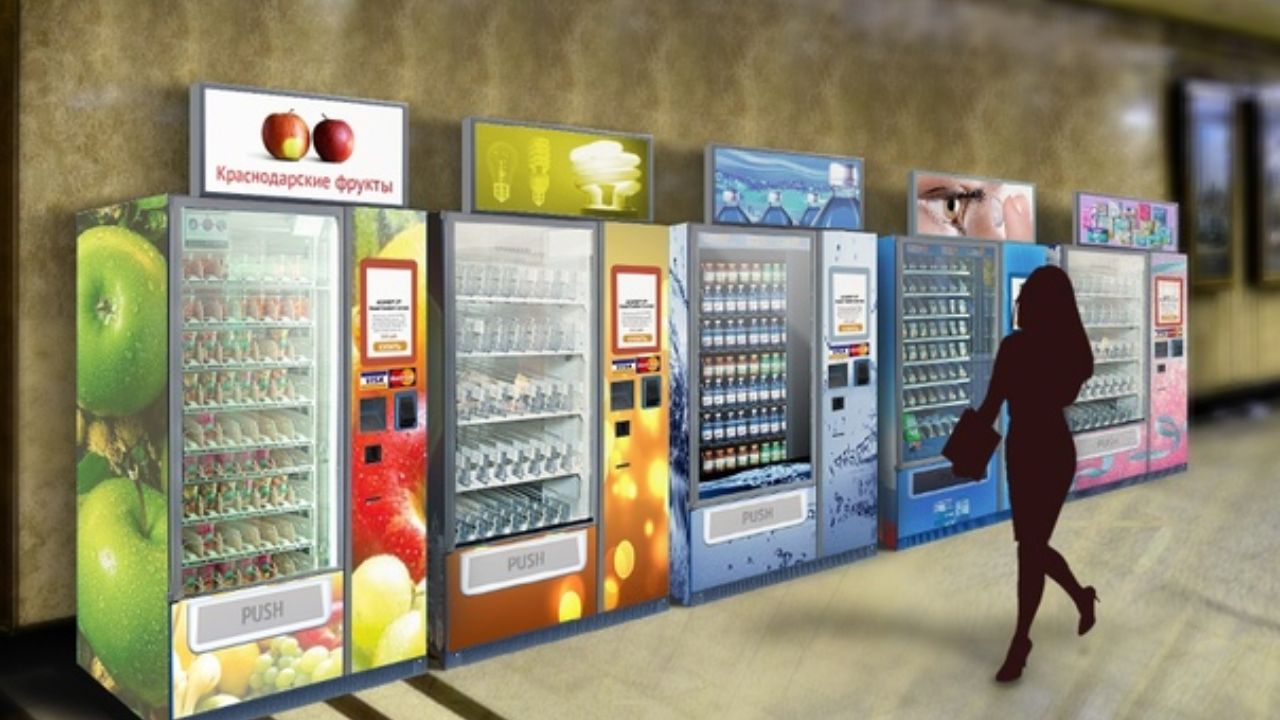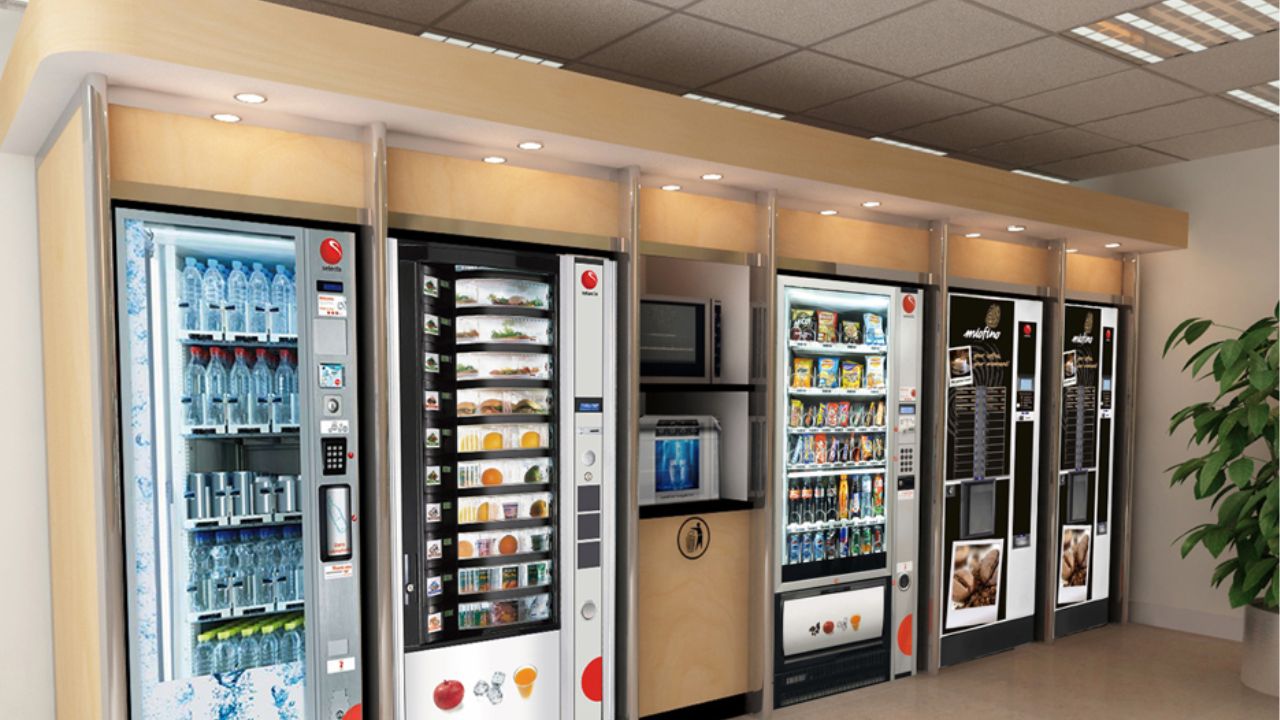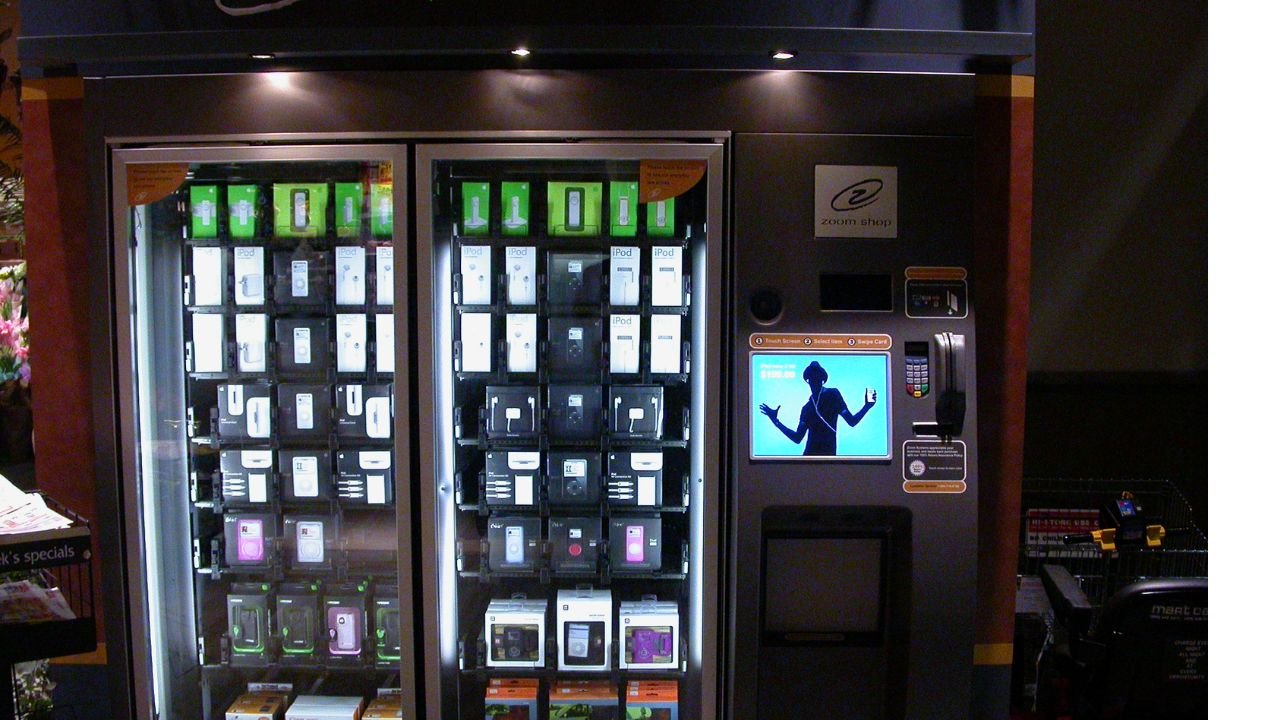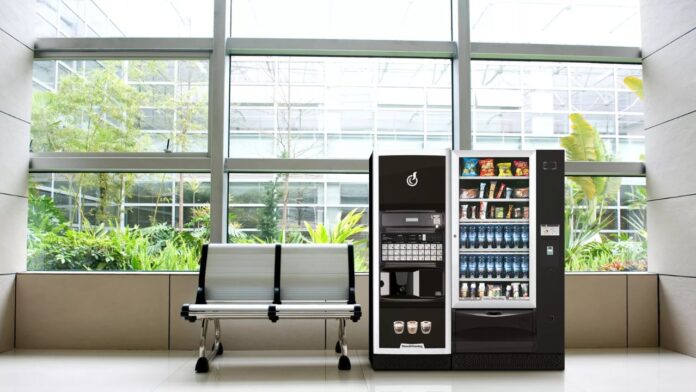Vending machines have evolved from simple mechanical contraptions to complex systems driven by sophisticated operating software. At the heart of these machines lies the vending machine operating system (OS), a crucial component that orchestrates every aspect of their functionality. This OS manages various hardware components, including sensors, actuators, coin validators, and product dispensers, ensuring seamless operation and user experience.
With advancements in technology, modern vending machine OSs have become increasingly intelligent and capable of analyzing data to optimize inventory management, track sales trends, and even offer personalized recommendations to customers. Given the prominence of vending machines in the retail and hospitality sectors, it is imperative for organizations aiming to improve productivity and satisfy changing customer preferences to comprehend the nuances of their operating systems.
Evolution of Vending Machine Technology
The evolution of vending machine technology has been remarkable, from simple coin-operated machines to highly sophisticated systems incorporating cutting-edge advancements. Initially serving basic snacks and beverages, vending machines have diversified to offer various products, including electronics, cosmetics, and hot meals. Integrating digital displays, touchscreens, and cashless payment options has revolutionized the user experience, making transactions quicker, more convenient, and interactive.

Furthermore, machine learning and artificial intelligence advancements have empowered vending machines to analyze consumer behavior, optimize product selection, and adapt to changing preferences in real-time. With the rise of smart vending machines equipped with IoT connectivity, remote monitoring, and predictive maintenance capabilities, the industry continues to push boundaries, providing customers with unmatched accessibility and convenience while opening up new avenues for corporate innovation and success.
Components of a Vending Machine Operating System
The components of a vending machine operating system (OS) form the backbone of its functionality, ensuring smooth operation and user satisfaction. At its core, the OS manages various hardware components, including sensors, actuators, and payment systems. Sensors detect factors like product availability, temperature, and currency, enabling the machine to make informed decisions and respond to user interactions. Actuators control mechanisms such as product dispensers and doors, facilitating the delivery of items to customers. Payment systems, including coin validators, bill acceptors, and card readers, enable seamless transactions and expand consumer payment options. Additionally, modern vending machine OSs often incorporate connectivity features, allowing remote monitoring, inventory management, and data analysis. By integrating these components effectively, vending machine OSs optimize efficiency, minimize downtime, and enhance operators’ and customers’ overall vending experience.
User Interface Design in Vending Machine
User interface (UI) design in vending machine operating systems (OS) is pivotal in shaping the user experience and facilitating seamless interactions. A well-designed UI ensures customers can navigate the vending machine effortlessly, select products quickly, and easily complete transactions. Key elements of UI design include intuitive touchscreen layouts, clear product categories, and prominent call-to-action buttons. Visual cues such as high-resolution product images and descriptive text enhance product visibility and aid decision-making. Additionally, accessibility features such as large fonts, contrast adjustment, and audio prompts cater to users with diverse needs.
Furthermore, UI design extends beyond the physical interface to encompass digital remote management and monitoring interfaces. Vending machine operating systems (OSs) can improve usability, boost customer satisfaction, and stimulate engagement by prioritizing user-centric design concepts. Ultimately, a thoughtfully crafted UI fosters positive interactions between users and vending machines, fostering loyalty and repeat business.
Payment Processing in Vending Machine
Payment processing is critical to vending machine operating systems (OS), facilitating seamless transactions and expanding consumer payment options. Modern vending machines are equipped with various payment methods, including traditional cash, coins, debit/credit cards, mobile payments, and contactless transactions. The OS integrates with payment hardware such as bill validators, coin mechanisms, card readers, and NFC (Near Field Communication) technology to securely process real-time transactions. Advanced encryption protocols ensure the security of sensitive payment data, protecting consumers and operators from fraud and unauthorized access. Additionally, vending machine OSs may offer dynamic pricing capabilities, adjusting prices based on demand, time of day, and inventory levels. By providing flexible and convenient payment solutions, vending machine OSs enhance the overall customer experience, driving sales and loyalty while adapting to evolving consumer preferences in an increasingly cashless society.
Inventory Management in Vending Machine Operating System
Inventory management is a crucial function of vending machine operating systems (OS), ensuring optimal stock levels and minimizing downtime. The OS utilizes sophisticated algorithms to track real-time inventory levels, monitor product sales, and predict demand patterns. Through sensors and data analytics, vending machine OSs can identify popular items, forecast replenishment needs, and adjust stocking strategies accordingly. Automated alerts notify operators when inventory levels are low, or items are nearing expiration, enabling timely restocking and reducing waste.

Additionally, vending machine OSs may incorporate remote monitoring capabilities, allowing operators to track inventory status and performance metrics from anywhere via a centralized dashboard. Vending machine operating systems (OSs) increase operational efficiency, save costs, and boost customer happiness by guaranteeing a steady supply of required products by optimizing inventory management procedures. Effective inventory management is essential for maximizing revenue and maintaining competitiveness in the vending industry.
Security Measures in Vending Machine
Security measures in vending machine operating systems (OS) are paramount to protect both the machines and the sensitive data they handle. Vending machine OSs implement robust encryption protocols to safeguard payment transactions and user information from unauthorized access and cyber threats. Physical security features such as tamper-resistant enclosures, locks, and alarms deter vandalism and theft. Adding biometric authentication, such as facial recognition or fingerprint scanners, is possible to stop unwanted access to sensitive data stored in the operating system or machine settings. Furthermore, remote monitoring capabilities enable operators to track machine activity and receive alerts in case of suspicious behavior or tampering attempts. Regular software upgrades and patches are necessary to fix vulnerabilities and preserve system integrity. By prioritizing security measures, vending machine OSs ensure operators’ and consumers’ safety and trust, fostering a secure and reliable vending experience.
Data Analytics and Reporting Capabilities
Data analytics and reporting capabilities are integral to modern vending machine operating systems (OS), enabling operators to gain valuable insights into machine performance and consumer behavior. Vending machine OSs can identify trends, analyze sales patterns, and optimize product offerings by leveraging data collected from transactions, inventory levels, and user interactions. Advanced analytics algorithms enable operators to forecast demand, adjust pricing strategies, and streamline inventory management processes. Real-time data dashboards provide operators with actionable information that empowers them to respond swiftly to changing market conditions and make well-informed decisions. Moreover, data analytics can help identify opportunities for revenue growth, such as location optimization and product placement strategies. Vending machine operating systems (OSs) enable operators to optimize revenue, improve client contentment, and maintain a competitive edge in a constantly evolving market.
Customization Options for Vending Machine
Customization options for vending machine operating systems (OS) enable operators to tailor their machines to specific preferences and requirements, enhancing flexibility and customer satisfaction. Vending machine OSs offer various customization features, such as configurable product menus, branding options, and promotional displays. Operators can easily adjust product selections, pricing, and promotions to align with changing consumer preferences and market trends. Additionally, vending machine OSs may support multi-language interfaces and accessibility features to accommodate diverse customer demographics. Advanced customization capabilities further allow operators to personalize the vending experience, offering loyalty programs, targeted promotions, and interactive engagement features. Furthermore, remote management tools enable operators to update machine settings and content remotely, ensuring scalability and efficiency across multiple locations. Vending machine operators can create unique and memorable customer experiences by leveraging customization options, maximizing revenue opportunities, and maintaining brand consistency.

Integration with Mobile Applications
Integration with mobile applications is a game-changer for vending machine operating systems (OS), offering convenience and enhanced functionality for both operators and consumers. By seamlessly connecting vending machines to mobile apps, users can browse product offerings and purchase and pre-order items from their smartphones. Integration with mobile payment platforms enables cashless transactions, expanding payment options and reducing friction at the point of sale. Moreover, mobile apps can provide real-time notifications and updates on promotions, inventory status, and machine locations, enhancing the overall user experience. Personalized promotions and focused marketing campaigns are made possible for operators by the unique insights into consumer behavior and preferences provided by integration with mobile applications. Additionally, mobile app integration enables remote management and monitoring of vending machines, allowing operators to track performance metrics, manage inventory, and troubleshoot issues from anywhere. Overall, integration with mobile applications enhances accessibility, convenience, and engagement, driving customer satisfaction and business growth in the vending industry.
Maintenance and Diagnostic Tools
Maintenance and diagnostic tools are essential for vending machine operating systems (OS), ensuring optimal performance and minimizing downtime. These tools provide operators with insights into machine health, facilitating proactive maintenance and troubleshooting. Automated diagnostic algorithms monitor key components, such as sensors, actuators, and payment systems, to detect anomalies and potential issues. Operators receive alerts and notifications for maintenance tasks, such as refilling inventory, cleaning components, or addressing mechanical failures. Maintenance and diagnostics tools also offer remote access capabilities, allowing operators to perform software updates, adjust settings, and conduct diagnostics from a centralized dashboard or mobile app. By streamlining maintenance processes and identifying problems early, these tools improve operational efficiency, reduce repair costs, and enhance customer satisfaction. Ultimately, maintenance and diagnostic tools are indispensable for ensuring the reliability and longevity of vending machines, enabling operators to deliver a seamless and consistent vending experience.
Multi-vendor Support in Operating Systems
Multi-vendor support in vending machine operating systems (OS) is a crucial feature that enables interoperability and flexibility across diverse machine types and manufacturers. By accommodating different hardware configurations, protocols, and communication standards, multi-vendor support allows operators to mix and match vending machines from various suppliers while maintaining centralized control and management. This capability streamlines procurement processes, reduces vendor lock-in, and fosters healthy supplier competition. Additionally, multi-vendor support promotes innovation and compatibility as vendors strive to create solutions seamlessly integrating with existing OS ecosystems. Operators benefit from a wider range of choices, enabling them to select the best-in-class machines for their specific needs and locations. Moreover, multi-vendor support facilitates scalability and future-proofing, allowing operators to expand their vending networks and adapt to evolving market trends without overhauling their existing infrastructure. Overall, multi-vendor support enhances operational efficiency, reduces costs, and empowers operators to deliver a superior vending experience to their customers.
Regulatory Compliance and Certification
Regulatory compliance and certification are paramount considerations for vending machine operating systems (OS), ensuring adherence to industry standards and regulations. Vending machine OSs must comply with various regulations governing food safety, consumer protection, and data privacy. Certifications such as NSF International’s food equipment standards and UL certification for electrical safety demonstrate compliance with industry best practices and legal requirements. Additionally, vending machine OSs may need to adhere to specific regional or national regulations, such as ADA accessibility standards or FCC requirements for wireless communication. Compliance with these regulations helps operators mitigate legal risks, protect consumer health and safety, and maintain brand trust. Furthermore, certifications assure stakeholders, including consumers, operators, and regulatory authorities, that vending machine OSs meet rigorous quality and safety standards. By prioritizing regulatory compliance and certification, vending machine OSs demonstrate their commitment to excellence and responsible business practices in the vending industry.
User Experience Enhancement Strategies
User experience enhancement strategies are pivotal for vending machine operating systems (OS), aiming to optimize consumer interactions and satisfaction. These strategies encompass various aspects, such as intuitive interface design, seamless payment processes, and personalized recommendations. User-friendly interfaces with clear navigation and attractive visuals facilitate effortless product selection and browsing. Integration with mobile payment platforms and contactless technologies streamlines transactions, enhancing convenience and speed. By providing customized recommendations based on user preferences and past purchases, personalization features increase customer satisfaction and engagement by utilizing data analytics.
Furthermore, accessibility features such as multilingual interfaces and audio prompts cater to diverse user demographics, ensuring inclusivity and usability for all. Continuous feedback mechanisms and user testing enable iterative improvements, refining the user experience. By prioritizing user-centric design principles and leveraging innovative technologies, vending machine OSs can create memorable and enjoyable experiences that foster loyalty and drive business growth in the competitive vending market.
Conclusion
A vending machine operating system (OS) is the brain behind vending machines, orchestrating their functions and interactions. It controls hardware components like sensors, payment systems, and product dispensers to enable seamless transactions and inventory management. Modern vending machine OSs are becoming increasingly sophisticated, incorporating features like data analytics, remote monitoring, and connectivity to enhance efficiency and the customer experience. They support various payment methods, including cash, cards, mobile payments, and even cryptocurrencies, catering to diverse consumer preferences. Additionally, vending machine OSs may offer customization options for product selection, pricing, and branding to meet specific operator requirements. Security measures such as encryption protocols and remote monitoring ensure the safety of transactions and machine integrity. Overall, vending machine OSs play a crucial role in the vending industry, driving innovation, convenience, and profitability for operators while providing accessible and reliable services to consumers.
FAQ
What is a vending machine operating system (OS)?
A vending machine operating system (OS) is the software that manages and controls vending machine functions. It regulates inventory management, payment processing, and user interface interactions.
What components are included in a vending machine OS?
A vending machine OS typically includes hardware drivers, inventory management algorithms, payment processing software, user interface design, and remote monitoring capabilities.
How does a vending machine ensure security?
Vending machine OSs employ various security measures, such as encryption protocols, secure payment processing, and remote monitoring, to safeguard transactions and prevent unauthorized access to machine settings or sensitive data.
Can vending machine OSs be customized?
Yes, vending machine OSs often offer customization options for product selection, pricing, branding, and user interface design to meet operators’ and consumers’ specific needs and preferences.
What advantages come with utilizing an OS for a vending machine?
Using a vending machine, OS enhances operational efficiency, improves inventory management, enables diverse payment options, enhances security, and provides opportunities for customization and innovation in vending machine services.

